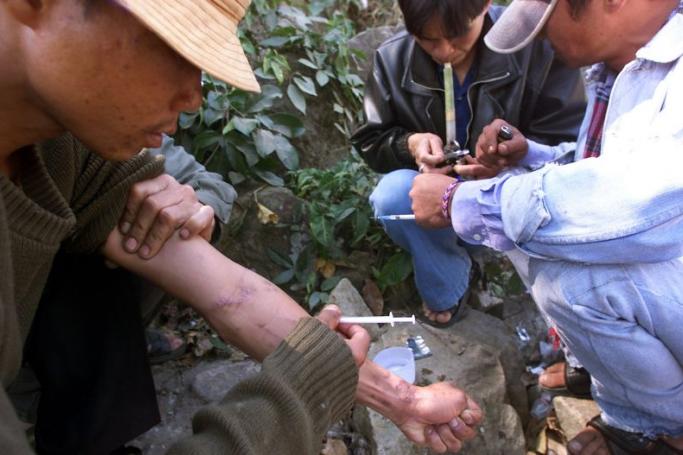Mizzima Editorial
Every year, the Myanmar burn about half a billion dollars’ worth of illegal narcotics.
But tell that to Myanmar drug addicts caught in the vicious cycle of addiction looking for the next hit.
Myanmar has a drug problem, an element in a report about to be released this week. The trade is one thing. But how can we help largely young addicts kick the habit in a country awash with cheap drugs?
Myanmar society has long struggled with this challenge, with NGOs and faith groups at times taking tough measures to place addicts in “cold turkey” or slash opium poppy plants in the fields, as seen in Kachin State. Now the situation is worse due to the chaos and increased corruption in the wake of the 2021 coup.
Rehabilitating drug addicts poses several challenges including denial and resistance, limited access to treatment, co-occurring mental health disorders, social stigma and discrimination, relapse prevention, withdrawal symptoms and detoxification, long-term support and reintegration, and high relapse rates.
It’s a tough call. Many individuals struggling with drug addiction may not recognize the severity of their problem or may be resistant to seeking help. Overcoming this initial resistance and encouraging individuals to acknowledge the need for rehabilitation is crucial.
Access to treatment can be a challenge, particularly in certain regions or for individuals with limited financial resources. Often in Myanmar, there is just nobody to help, bar the family, or possibly the local monastery.
Co-occurring mental health disorders often accompany drug addiction. Conditions such as depression, anxiety, or trauma-related disorders require simultaneous treatment alongside addiction. Addressing these underlying mental health issues in conjunction with addiction recovery can be complex and requires a holistic approach, not easily available in a country in crisis.
Social stigma and discrimination surrounding drug addiction create significant barriers to rehabilitation in Myanmar. Individuals may face judgment and prejudice, which can hinder their reintegration into society. Overcoming this stigma and creating supportive environments for recovering addicts is vital. Public education and awareness campaigns can help combat social stigma and promote understanding and empathy.
Relapse prevention is a critical aspect of rehabilitation. Addiction is a chronic condition, and relapse rates are high. Developing effective strategies to prevent relapse, such as ongoing support and aftercare programmes, is crucial for long-term recovery. Going cold turkey presents physical and psychological challenges during the early stages of recovery. Medically supervised detoxification programmes are often necessary to ensure the safety and comfort of individuals undergoing withdrawal.
Long-term support and reintegration are essential for sustained recovery. Recovering addicts require ongoing support and assistance in reintegrating into society, finding stable employment, and rebuilding their lives. Insufficient support systems and resources can impede the long-term recovery and reintegration process, again not easy in a country in crisis.
With all the challenges Myanmar faces, the forgotten drug addicts tend to be left on the wayside.
Who cares? Maybe we should all care. Down on their luck individuals need to be reintegrated into Myanmar society for when it eventually recovers and rebuilds itself.












